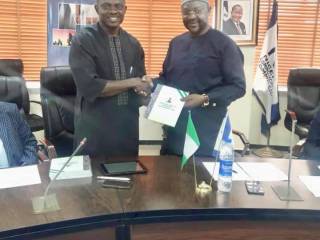The NCC and FRCN also agreed to institute processes to achieve seamless implementation of the two codes with respect to enforcement, monitoring, stakeholder enlightenment, and unforeseen exigencies that may arise in the course of time.
Sunday Dare, NCC's Executive Commissioner, Stateholder Management, who represented NCC's Chief Executive, Prof. Umar Danbatta at the meeting held at NCC Head Office, stated that the NCC issued the code of corporate governance for the telecom sector because of its significance in ensuring transparency, accountability and ethical practices that will bolster growth and sustainable development of the telecom industry. The Executive Secretary and Chief Executive of FRCN, Daniel Asapokhai, who led the Council's delegation to NCC, also reasoned that collaboration was key to ensuring robust implementation of the codes of governance across sectors. He affirmed that the national code in the purview of FRCN should serve as a framework for other sectoral guidelines in this regard.
The NCC as a proactive regulatory authority and a leading light public sector organisation, in its characteristic preference for enthroning world-class, best practices in the Nigerian telecom ecosystem, had earlier released a code of corporate governance for the telecom sector in 2014 after consulting with industry stakeholders.
The code which had a moral force, became mandatory in 2016 after further review and engagement with licensees in the telecom ecosystem, and the Code has been operational since then. Accordingly, this collaborative effort between NCC and FRCN became necessary because the latter launched the national code for corporate governance in 2018 to serve as a template for national action in this regard. It is therefore gratifying that the two organisations have agreed to harmonise the divergences that may exist and on other related matters.
